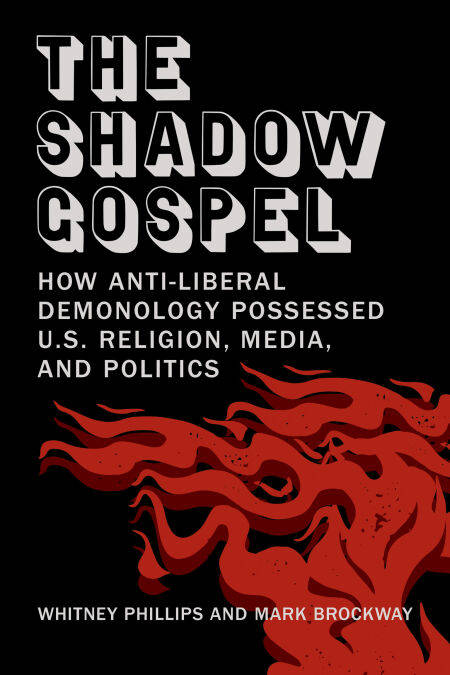
- Retrait en 2 heures
- Assortiment impressionnant
- Paiement sécurisé
- Toujours un magasin près de chez vous
- Retrait gratuit dans votre magasin Club
- 7.000.0000 titres dans notre catalogue
- Payer en toute sécurité
- Toujours un magasin près de chez vous
The Shadow Gospel EBOOK
How Anti-liberal Demonology Possessed U.S. Religion, Media, and Politics
Whitney Phillips, Mark Brockway
Ebook | Anglais
39,42 €
+ 39 points
Description
A novel account of the culture wars and Evangelical influence in the United States that traces the 80-year rise of a quasi-religious anti-liberal demonology.
When people talk about the chaotic, increasingly precarious political landscape in the United States, they often blame polarization and the culture wars. In The Shadow Gospel, Whitney Phillips and Mark Brockway tell a very different story. Analyzing eighty years of densely overlapping religious and secular messages preaching the dangers of liberalism, the book argues that the fracture and chaos in U.S. politics isn’t the result of a clean split between left and right. Instead, it’s a split between the shadow gospel’s quasi-religious anti-liberal demonology—the vague sense that an evil leftist force is threatening to destroy American society—and the people accused of being the liberal devil.
A shadow gospel framework helps contextualize the violence of January 6, 2021, the fervor of Satanic conspiracy theorizing, and the crusade against “wokeness” and LGBTQ existence. But it also helps explain the most vexing elements of our politics: that the most potent source of religious messaging and influence in the United States is secular, that the most ruthless destroyers of Republicans are other Republicans, and that anti-liberal fear and loathing span the political spectrum.
By offering new ways of thinking about religious influence, the left/right dichotomy, and the appeal of Donald Trump, The Shadow Gospel reveals the true roadblocks to pluralistic democracy and emphasizes what people across the religious and political spectrum stand to lose if we don’t exorcise our anti-liberal demons. There are no easy solutions to our vast and complicated political problems. But those solutions will remain elusive if how we frame our problems is part of the problem. It is long past time to drag the shadow gospel out into the light.
When people talk about the chaotic, increasingly precarious political landscape in the United States, they often blame polarization and the culture wars. In The Shadow Gospel, Whitney Phillips and Mark Brockway tell a very different story. Analyzing eighty years of densely overlapping religious and secular messages preaching the dangers of liberalism, the book argues that the fracture and chaos in U.S. politics isn’t the result of a clean split between left and right. Instead, it’s a split between the shadow gospel’s quasi-religious anti-liberal demonology—the vague sense that an evil leftist force is threatening to destroy American society—and the people accused of being the liberal devil.
A shadow gospel framework helps contextualize the violence of January 6, 2021, the fervor of Satanic conspiracy theorizing, and the crusade against “wokeness” and LGBTQ existence. But it also helps explain the most vexing elements of our politics: that the most potent source of religious messaging and influence in the United States is secular, that the most ruthless destroyers of Republicans are other Republicans, and that anti-liberal fear and loathing span the political spectrum.
By offering new ways of thinking about religious influence, the left/right dichotomy, and the appeal of Donald Trump, The Shadow Gospel reveals the true roadblocks to pluralistic democracy and emphasizes what people across the religious and political spectrum stand to lose if we don’t exorcise our anti-liberal demons. There are no easy solutions to our vast and complicated political problems. But those solutions will remain elusive if how we frame our problems is part of the problem. It is long past time to drag the shadow gospel out into the light.
Spécifications
Parties prenantes
- Auteur(s) :
- Editeur:
Contenu
- Nombre de pages :
- 326
- Langue:
- Anglais
Caractéristiques
- EAN:
- 9780262383011
- Date de parution :
- 14-04-25
- Format:
- Ebook
- Protection digitale:
- Adobe DRM
- Format numérique:
- ePub

Seulement chez Librairie Club
+ 39 points sur votre carte client de Librairie Club
Les avis
Nous publions uniquement les avis qui respectent les conditions requises. Consultez nos conditions pour les avis.







